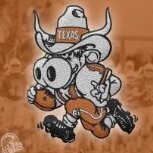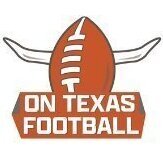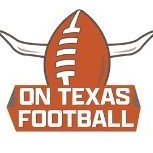All Activity
- Past hour
-
It’s wild there are people who defend the coach for that sport.
-

This team will be special
Quinncent McManning, Jr. replied to PinchPullPancake's topic in On Texas Football Forum
lol at the lady asking for arch’s last name -
Fire the Track Coach??
Assistant Regional Manager replied to TexasFanatic's topic in On Texas Football Forum
Women’s Soccer continues to be the most underperforming sport on campus compared to where we should be. At least in mind. -
Exactly and trying to be fair to track as well.But all those did underachieve this year as well as Women's Soccer as always😂🤘
-
You absolutely love to see it!
-
OTF Premium June 13-15 Weekend Official Visit Thread
justwinbaby replied to Gerry Hamilton's topic in On Texas Football Forum
Expected, some can’t handle SEC recruiting -
Great list of #77 honorees. Each is deserving in his own way. Mauldin probably served in Europe and perhaps Africa. There were few B17 and B24 bombers in the Pacific theatre. It took the sophisticated B29 to handle the long distances and high altitudes across the Pacific to bomb Japan. The B29 was never used in Europe as it was a later developed bomber.
-
Nice to see these guys supporting one another like this.
-
They will be worse next year
-
So a correction on Mauldin. He did NOT pass away during WW2. Here is the rundown: Stan Mauldin’s World War II Service and Death World War II Service Enlistment and Role: After his standout football career at the University of Texas, Stan Mauldin enlisted in the U.S. Army Air Forces during World War II. He served as a navigator on a B-24 Liberator bomber, a heavy bomber used extensively by the U.S. in various theaters of the war. Service Details: While specific details about his missions or theater of operations (e.g., Europe, Pacific, or elsewhere) are not fully documented in the provided sources, Mauldin’s role as a navigator would have involved critical tasks such as plotting flight paths, managing navigation equipment, and ensuring the aircraft reached its targets and returned safely. Navigators were essential to the success of bombing missions, often under intense combat conditions. Survival of the War: Mauldin survived his wartime service, which included dangerous missions typical of B-24 crews facing enemy fighters, anti-aircraft fire, and mechanical risks. He returned to civilian life after the war ended in 1945. Death Date and Place: Stan Mauldin died on September 24, 1948, in Philadelphia, Pennsylvania. Cause of Death: According to available information, Mauldin suffered a heart attack during a football game between the Philadelphia Eagles and the Los Angeles Rams. He was attending the game as a spectator, not as a player, and was only 27 years old at the time. This tragic event occurred just three years after the end of World War II, cutting short the life of a decorated athlete and veteran. Context: The heart attack was sudden and unexpected, especially given Mauldin’s youth and athletic background. No specific details in the sources indicate whether underlying health conditions or wartime injuries contributed to his death, but heart issues in young adults can sometimes be linked to stress, undetected conditions, or other factors. Legacy Posthumous Recognition: Mauldin’s contributions to both football and his country were honored after his death. In 1969, he was inducted into the Texas Longhorns Hall of Honor, recognizing his athletic achievements and his service as a war veteran. Memorialization: His story is remembered as part of the University of Texas’s proud tradition of athletes who served in World War II, many of whom faced significant risks and sacrifices.
-

OTF Premium June 13-15 Weekend Official Visit Thread
CJ Vogel replied to Gerry Hamilton's topic in On Texas Football Forum
Some Official visitors are out on the lake this morning.- 211 replies
-
- 10
-

-

- Today
-

OTF Premium June 13-15 Weekend Official Visit Thread
CJ Vogel replied to Gerry Hamilton's topic in On Texas Football Forum
JaReylan McCoy has committed to Florida. -
Really enjoyed learning about Mauldin this morning, who actually passed away at an early age. Here is the Mauldin file: Stanley Mauldin, who wore jersey number 77, was a standout offensive lineman for the Texas Longhorns in the late 1930s and early 1940s, a period when college football was gaining national prominence. Below is a detailed overview of his collegiate career, pieced together from available historical records and context provided by your prior inquiries. Career Overview Position: Guard (Offensive Lineman) Years Active: Approximately 1939–1942 (exact years are slightly unclear due to limited records, but 1941–1942 are confirmed as his prominent seasons) Jersey Number: 77 Key Achievement: All-Southwest Conference (SWC) selection in 1942 Season Highlights 1941 Season Team Context: The 1941 Texas Longhorns, coached by Dana X. Bible, had an 8–1–1 record, finishing ranked No. 4 in the AP Poll. This was one of the strongest teams of the era, featuring players like quarterback Bobby Layne and running back Pete Layden. Mauldin’s Role: As a guard, Mauldin was a key component of the offensive line, protecting Layne and opening holes for the running game. The Longhorns’ success, including a 14–7 victory over No. 20 Washington in Seattle and a 7–7 tie against No. 2 Texas A&M, relied heavily on the line’s performance. Mauldin’s toughness and blocking were critical in an era when linemen played both offense and defense. Notable Game: Texas defeated No. 6 Baylor 21–7, showcasing the team’s dominance, with Mauldin contributing to a balanced attack that outgained opponents significantly. 1942 Season Team Context: The 1942 Longhorns went 9–2, finishing ranked No. 11. They won the Southwest Conference title and defeated Georgia Tech 14–7 in the Cotton Bowl, a significant postseason victory. This team continued to benefit from a strong offensive line, with Mauldin as a senior leader. Mauldin’s Performance: Mauldin earned All-Southwest Conference honors in 1942, recognizing him as one of the top linemen in the region. His physical play and leadership helped Texas maintain a potent offense, averaging over 20 points per game in an era of lower-scoring football. Cotton Bowl Contribution: In the Cotton Bowl victory, Mauldin’s line play was instrumental in controlling the trenches against a tough Georgia Tech squad, enabling Texas to secure a 14–7 win. Statistical and Historical Notes Limited Stats: Detailed individual statistics for linemen from the early 1940s are scarce, as the focus was on team performance and key plays rather than individual metrics like tackles or pancakes. Mauldin’s impact is best measured by his All-SWC recognition and the team’s success. Era Context: College football in the early 1940s featured single-platoon systems, meaning Mauldin likely played both offensive and defensive guard. Games were lower-scoring, and linemen were valued for their ability to dominate the line of scrimmage. Texas’ success (17–3–1 record over 1941–1942) reflects the strength of players like Mauldin. Teammates: Playing alongside future NFL star Bobby Layne and other SWC standouts, Mauldin was part of a talented roster that helped elevate Texas’ national profile. Legacy and Significance All-SWC Honor: Mauldin’s 1942 All-Southwest Conference selection places him among the elite players in a competitive conference that included Texas A&M, SMU, and Baylor. Team Success: His contributions to the 1941 (No. 4 ranking) and 1942 (SWC title, Cotton Bowl win) seasons highlight his role in a golden era for Texas football. Tragic End: Mauldin’s career is often remembered alongside his sacrifice in World War II. His service and death are noted in Texas Longhorns historical accounts, making him a figure of both athletic and patriotic significance. Summary Stanley Mauldin was a key offensive guard for the Texas Longhorns during the 1941–1942 seasons, earning All-Southwest Conference honors in 1942 and contributing to a 17–3–1 record, an SWC title, and a Cotton Bowl victory. His role in protecting Bobby Layne and anchoring the line was vital to Texas’ success, and his All-SWC recognition underscores his skill. His legacy is further elevated by his wartime sacrifice, making him a notable figure in Longhorns history for No. 77.









